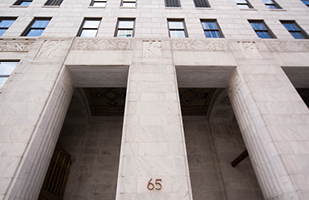Chief Justice Guides Local Courts Amid the Coronavirus Crisis

Chief Justice Maureen O’Connor offers courts operational guidelines during the coronavirus crisis.

Chief Justice Maureen O’Connor offers courts operational guidelines during the coronavirus crisis.
Ohio Supreme Court Chief Justice Maureen O’Connor is reminding judges, bar members and other legal stakeholders of the guidance available to them in the Court’s recently released public health guide.
“The COVID-19 pandemic has created unprecedented times for the judiciary and the bar of Ohio,’ Chief Justice O’Connor said. “Now, more than ever, it is imperative that the judiciary, the bar, and all justice system partners work together to ensure access to the courts while also minimizing COVID-19 transmission.”
Guidance has come in the form of the Chief Justice’s public statements as well as the direction given in “The Judicial Guide to Public Health,” a comprehensive, 155-page report compiled five months ago and released in January.
The Chief Justice said that attention must given to the risks of COVID-19 transmission to the public, litigants, bar, and court staff when considering local court operations.
“While there is no one solution that will be appropriate for every court, there are a number of options that should be considered under existing authority,’ Chief Justice O’Connor said.
The directives include:
- Minimizing physical appearances at courts unless it’s a filing of emergency or time-sensitive cases, particularly if e-filing is not available
- Temporarily continuing eviction filings, pending eviction proceedings, scheduled move-outs, and the execution of foreclosure judgements (except in the instances where allegations of domestic violence are involved)
- At bail hearings, issuing recognizance bonds, unless there is clear and convincing evidence that recognizance release would present a substantial risk of harm
- Using discretion to release individuals held in jail
- Releasing incarcerated individuals who are in a high-risk category for being infected with the virus (e.g., the elderly, those with asthma, cancer, heart disease, lung disease, and diabetes) unless there is clear and convincing evidence that release would present a substantial risk of harm.
- For individuals incarcerated for non-violent misdemeanor offenses, releasing and placing them on community-control sanctions, including GPS or electronic monitoring, unless there is clear and convincing evidence that release would present a substantial risk of harm.
In addition to these directives, the Ohio Supreme Court has asked local courts to provide updates on their local court webpages and provide public notifications that hearings are available for emergency actions, such as civil protection orders, restraining orders, temporary orders, medical emergency filings, shelter care hearings or preliminary protective hearings for children alleged to be abused, neglected or dependent, adult protective services, emergency guardianship, and proceedings for a mentally ill person.
It’s also advised to regularly check the Supreme Court’s Coronavirus website for updated information.
Acrobat Reader is a trademark of Adobe Systems Incorporated.


